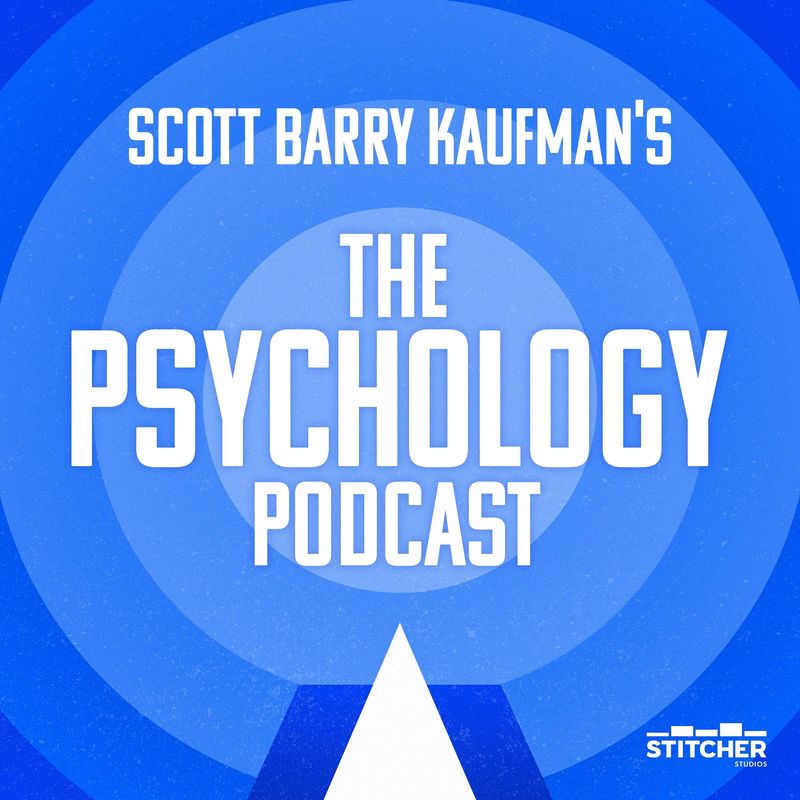
This episode currently has no reviews.
Submit Review- Podcast |
- The Psychology Podcast
- Media Type |
- audio
- Podknife tags |
- Creativity,
- Health,
- Interview,
- Psychology,
- Science & Medicine,
- Self-Help,
- Social Sciences
- Publication Date |
- Aug 01, 2019
- Episode Duration |
- 01:03:10
oday with have Brian Nosek on the podcast. Nosek is co-Founder and Executive Director of the Center for Open Science (http://cos.io/) that operates the Open Science Framework (http://osf.io/). The Center for Open Science is enabling open and reproducible research practices worldwide. Brian is also a Professor in the Department of Psychology at the University of Virginia. He received his Ph.D. from Yale University in 2002. He co-founded Project Implicit (http://projectimplicit.net/), a multi-university collaboration for research and education investigating implicit cognition–thoughts and feelings that occur outside of awareness or control. Brian investigates the gap between values and practices, such as when behavior is influenced by factors other than one’s intentions and goals. Research applications of this interest include implicit bias, decision-making, attitudes, ideology, morality, innovation, and barriers to change. Nosek applies this interest to improve the alignment between personal and organizational values and practices. In 2015, he was named one of Nature’s 10 and to the Chronicle for Higher Education Influence list.
In this episode we discuss:
- The genesis of Project Implicit
- The current state of the field of implicit bias
- Overuses of the Implicit Association Test (IAT)
- The common desire people have for simple solutions
- The potential for misuse of the IAT for real-world selection
- How hard it is to study human behavior
- What the IAT is really capturing
- How the degree to which the IAT is trait or state-like varies by the topic you are investigating
- Cultural influences on the IAT
- Brian’s criticism of implicit bias training
- The latest state of the science on implicit bias
- How our ideologies creep in even when we are trying to be unbiased
- The difference between implicit attitudes and conscious attitudes
- What would an equality of implicit associations look like?
- Why bias is not necessarily bad
- The genesis of The Reproducibility Project
- What are some classic psychological studies that haven’t replicated?
- The importance of having compassion for the scientist
- The importance of having the intellectual humility of uncertainty
- The importance of cultivating the desire to get it right (instead of the desire to be right)
- What is open science?
- What is #BroOpenScience?
- How hostility on social media can cause us to lose the view of the majority
- The importance of balancing getting it right with being kind to others
Support this podcast: https://anchor.fm/the-psychology-podcast/support
oday with have Brian Nosek on the podcast. Nosek is co-Founder and Executive Director of the Center for Open Science (http://cos.io/) that operates the Open Science Framework (http://osf.io/). The Center for Open Science is enabling open and reproducible research practices worldwide. Brian is also a Professor in the Department of Psychology at the University of Virginia. He received his Ph.D. from Yale University in 2002. He co-founded Project Implicit (http://projectimplicit.net/), a multi-university collaboration for research and education investigating implicit cognition–thoughts and feelings that occur outside of awareness or control. Brian investigates the gap between values and practices, such as when behavior is influenced by factors other than one’s intentions and goals. Research applications of this interest include implicit bias, decision-making, attitudes, ideology, morality, innovation, and barriers to change. Nosek applies this interest to improve the alignment between personal and organizational values and practices. In 2015, he was named one of Nature’s 10 and to the Chronicle for Higher Education Influence list.
In this episode we discuss:
- The genesis of Project Implicit
- The current state of the field of implicit bias
- Overuses of the Implicit Association Test (IAT)
- The common desire people have for simple solutions
- The potential for misuse of the IAT for real-world selection
- How hard it is to study human behavior
- What the IAT is really capturing
- How the degree to which the IAT is trait or state-like varies by the topic you are investigating
- Cultural influences on the IAT
- Brian’s criticism of implicit bias training
- The latest state of the science on implicit bias
- How our ideologies creep in even when we are trying to be unbiased
- The difference between implicit attitudes and conscious attitudes
- What would an equality of implicit associations look like?
- Why bias is not necessarily bad
- The genesis of The Reproducibility Project
- What are some classic psychological studies that haven’t replicated?
- The importance of having compassion for the scientist
- The importance of having the intellectual humility of uncertainty
- The importance of cultivating the desire to get it right (instead of the desire to be right)
- What is open science?
- What is #BroOpenScience?
- How hostility on social media can cause us to lose the view of the majority
- The importance of balancing getting it right with being kind to others
Support this podcast: https://anchor.fm/the-psychology-podcast/support
This episode currently has no reviews.
Submit ReviewThis episode could use a review! Have anything to say about it? Share your thoughts using the button below.
Submit Review